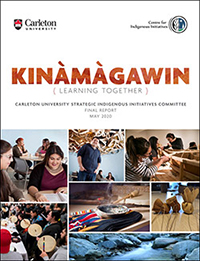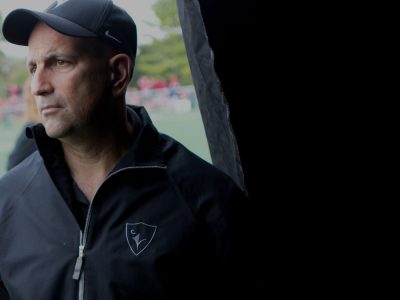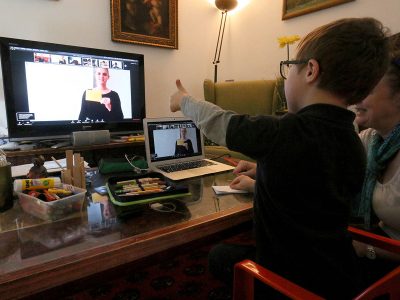By Dan Rubinstein
When Carleton University’s Centre for Indigenous Initiatives released the Kinàmàgawin: Learning Together report in May 2020, it put forward 41 calls to action aimed at making the campus a safer space for Indigenous students, faculty and staff.
To continue moving toward that goal, the centre is launching a new Kinàmàgawin Indigenous Learning Certificate program this fall—a series of workshops to help teach students, faculty and staff about allyship and teach the Carleton community about Indigenous experiences within the education system.
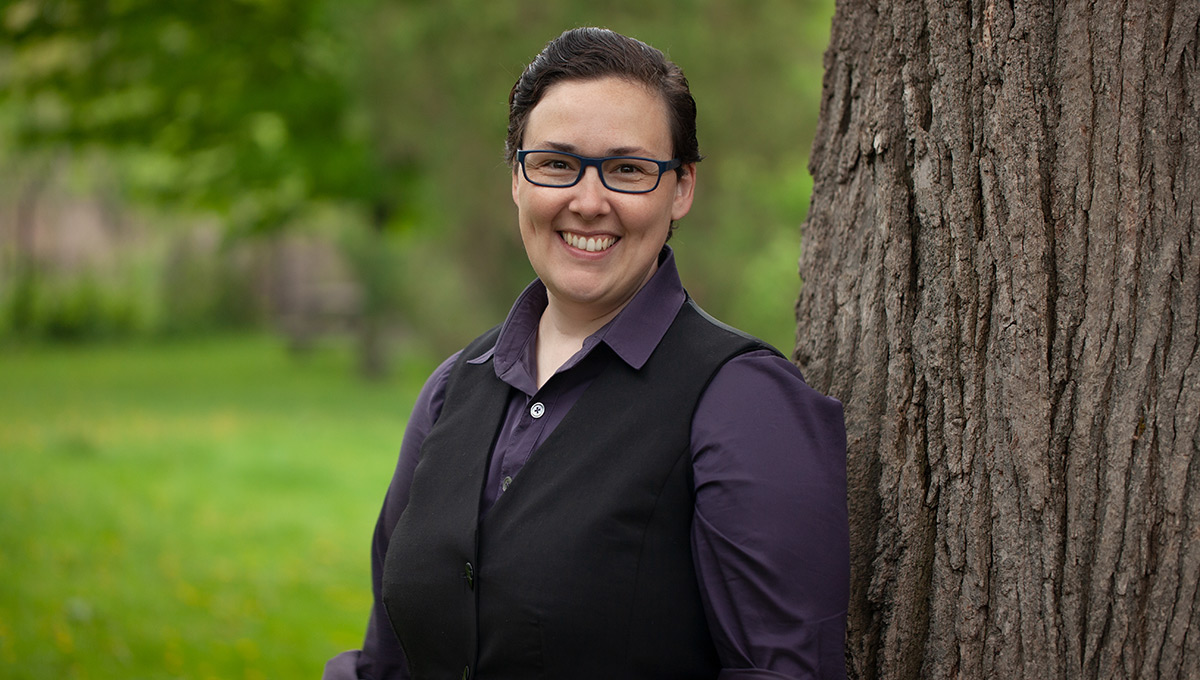
Centre for Indigenous Initiatives Director Benny Michaud
“Developing this program was our team’s response to the events of last summer,” says Benny Michaud, director of the Centre for Indigenous Initiatives.
“The deaths of George Floyd and Chantel Moore brought to the forefront how prejudice can fuel violence towards racialized and Indigenous Peoples. Healing from trauma requires action on the part of those impacted. Our team was deeply impacted by these events and, ultimately, realized that the training we have offered to date needed to be updated.
“We wanted to go beyond providing a simple history lesson in these workshops,” she continues, “and create a learning journey that ends with participants feeling empowered and able to intervene when anti-Indigenous racism is occurring.
“Part of bringing humility to this conversation is recognizing anti-Indigenous racism is present at Carleton. We are a community of over 30,000 people. In order to do the work of reconciliation, we first must acknowledge these difficult truths.”
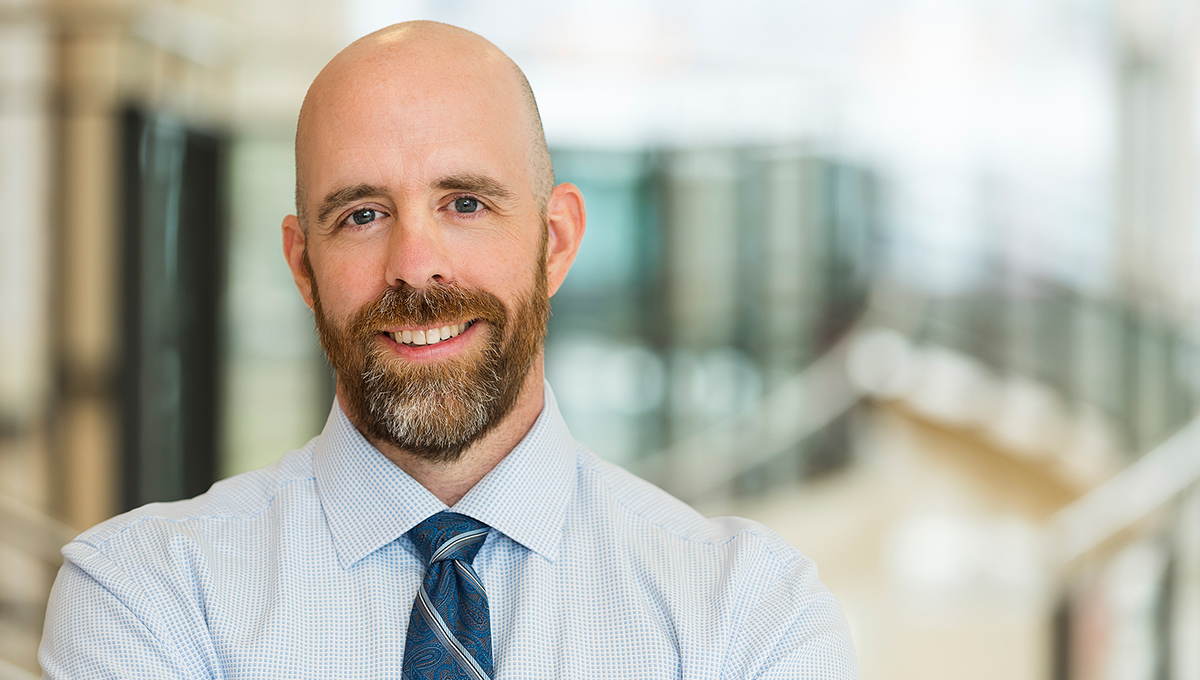
President Benoit-Antoine Bacon
“I am thrilled with this important new initiative,” says Carleton President Benoit-Antoine Bacon.
“Our Kinàmàgawin report’s 41 calls to action provide a roadmap for continuous improvement. The only way to make progress is to meet each other in the spirit of learning and to listen in order to understand each other. These workshops are an important step in the right direction.”
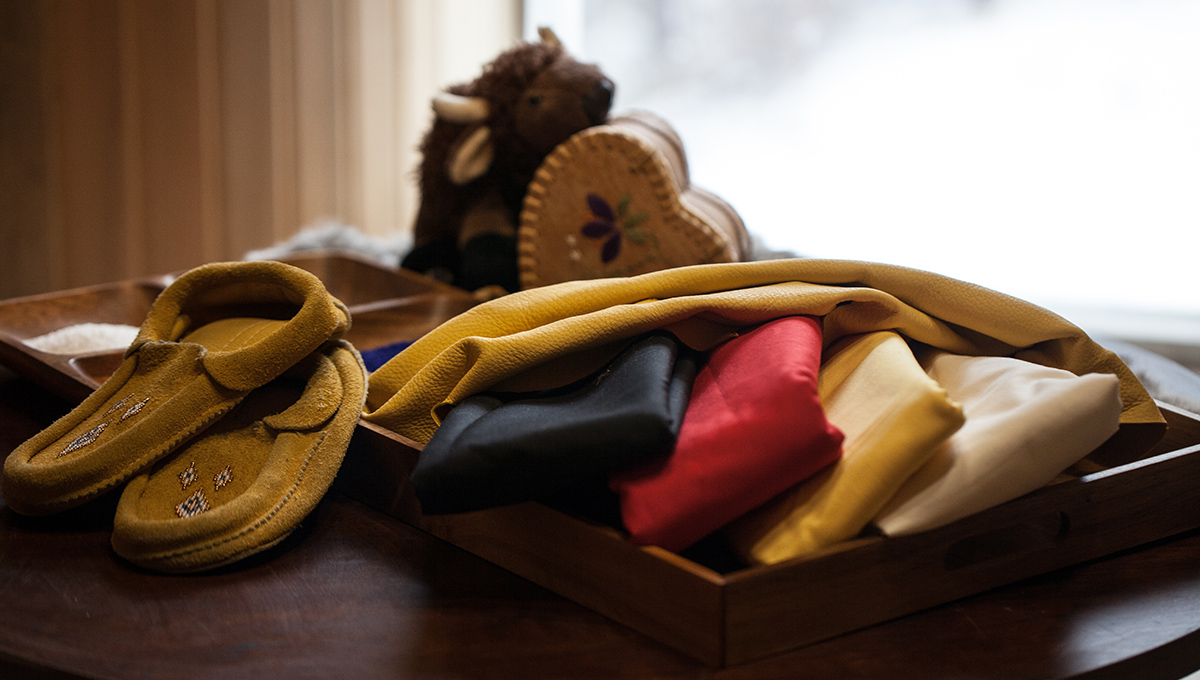
Empowering People to Stop Anti-Indigenous Racism
Lane Bourbonniere, who became Carleton’s first Indigenous Curriculum Learning Specialist this past May, will be the program’s lead facilitator.
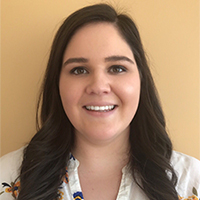
Lane Bourbonniere
“These workshops will allow non-Indigenous allies to become equipped with proper tools to help Indigenous Peoples, however they will also help Carleton address critical issues in a good way,” she says.
“They will provide context to Indigenous experiences within the education system and show why there is a need to implement programs and services that allow Indigenous students, staff and faculty to succeed on campus.”
Although some people may feel they know enough about allyship and Indigenous issues already, “I think it is essential to realize that you can always learn more,” says Bourbonniere.
“We all need to be held accountable to make changes for the better, and signing up for this workshop is one way you can do that.”
Michaud is continuously heartened by the number of Carleton faculty, staff and students who express their desire to actively address the inequities Indigenous peoples face—to continue to learn and impact change.
“They have the will,” she says, “and our team at the Centre for Indigenous Initiatives wants to provide the way.”

Kinàmàgawin Workshops Starting this Fall
The workshops will run twice a year—once in the fall term and once in the winter. Each session will consist of four different workshops, each about three hours long, over four months. They will start online and transition to in-person when it is safe to do so.
Registration is open and each session can accommodate 20 to 25 participants, with separate cohorts for students and faculty/staff, depending on the number of people who sign up.
The four specific topics to be covered are:
- Anti-Indigenous Racism in Canada: Participants will learn the meaning of settler colonialism, who is a settler, and how the oppression of BIPOC communities affects these conversations. By understanding one’s own privilege and learning about anti-Indigenous micro-aggressions, participants will leave this workshop better able to identify and intervene when anti-Indigenous racism occurs.
- Institutional Anti-Indigenous Racism and Education: In this workshop, participants will learn about systemic and institutional forms of oppression that negatively impact Indigenous Peoples in Canada.
- Indigenous Student Experiences and the Centre for Indigenous Initiatives: Participants will hear directly from current and former Indigenous students at Carleton about what challenges they face as they work towards their degrees, and what supports they feel have been critical to their success.
- Practicing Allyship and Righting Relations: This final workshop will encourage participants to apply what they have learned in previous sessions. Participants will leave this workshop knowing how to make space for Indigenous perspectives, support the inclusion of Indigenous Peoples and maintain respectful relationships with Indigenous individuals and communities.
Monday, August 9, 2021 in Indigenous, New/Unique Programs, Student Experience
Share: Twitter, Facebook
